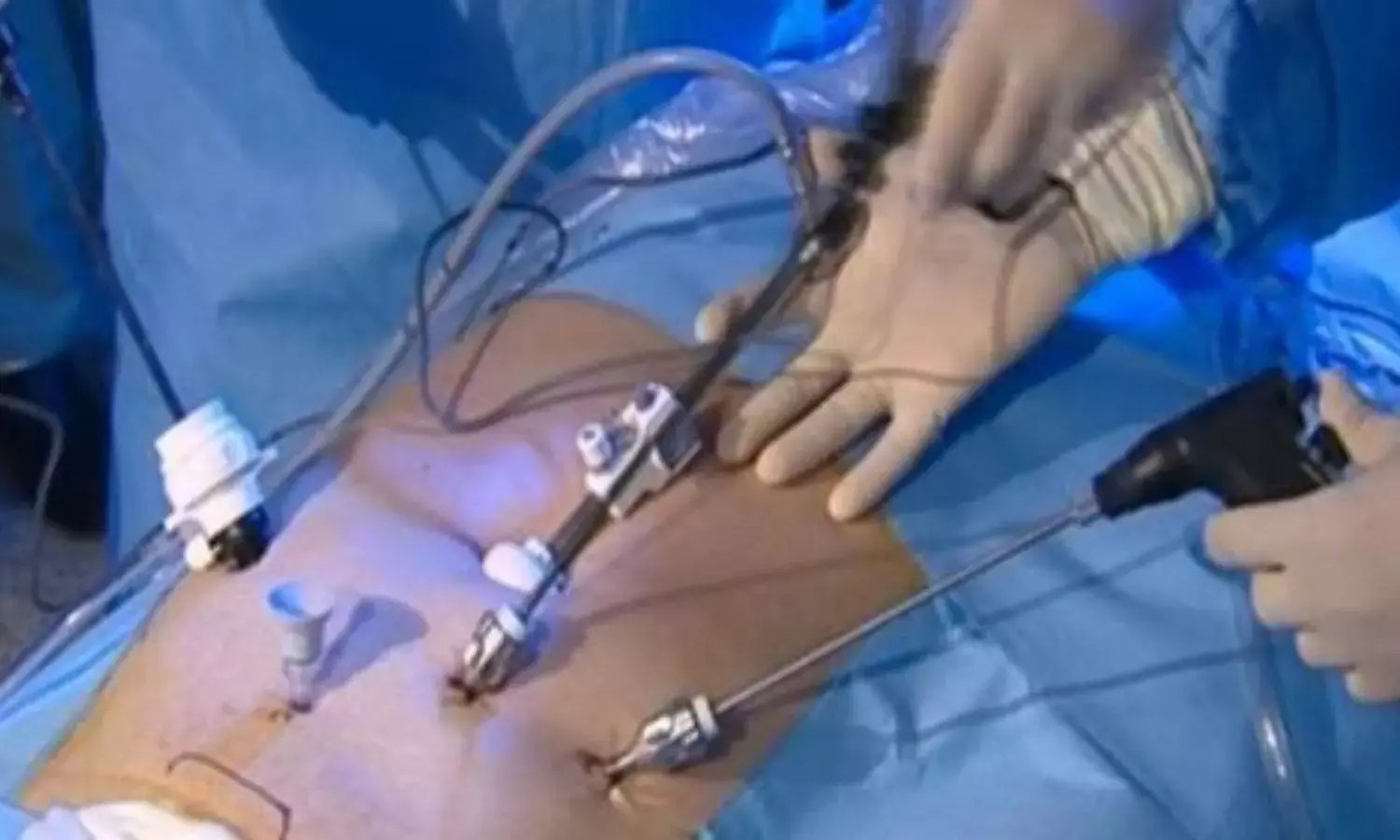- Home
- Medical news & Guidelines
- Anesthesiology
- Cardiology and CTVS
- Critical Care
- Dentistry
- Dermatology
- Diabetes and Endocrinology
- ENT
- Gastroenterology
- Medicine
- Nephrology
- Neurology
- Obstretics-Gynaecology
- Oncology
- Ophthalmology
- Orthopaedics
- Pediatrics-Neonatology
- Psychiatry
- Pulmonology
- Radiology
- Surgery
- Urology
- Laboratory Medicine
- Diet
- Nursing
- Paramedical
- Physiotherapy
- Health news
- Fact Check
- Bone Health Fact Check
- Brain Health Fact Check
- Cancer Related Fact Check
- Child Care Fact Check
- Dental and oral health fact check
- Diabetes and metabolic health fact check
- Diet and Nutrition Fact Check
- Eye and ENT Care Fact Check
- Fitness fact check
- Gut health fact check
- Heart health fact check
- Kidney health fact check
- Medical education fact check
- Men's health fact check
- Respiratory fact check
- Skin and hair care fact check
- Vaccine and Immunization fact check
- Women's health fact check
- AYUSH
- State News
- Andaman and Nicobar Islands
- Andhra Pradesh
- Arunachal Pradesh
- Assam
- Bihar
- Chandigarh
- Chattisgarh
- Dadra and Nagar Haveli
- Daman and Diu
- Delhi
- Goa
- Gujarat
- Haryana
- Himachal Pradesh
- Jammu & Kashmir
- Jharkhand
- Karnataka
- Kerala
- Ladakh
- Lakshadweep
- Madhya Pradesh
- Maharashtra
- Manipur
- Meghalaya
- Mizoram
- Nagaland
- Odisha
- Puducherry
- Punjab
- Rajasthan
- Sikkim
- Tamil Nadu
- Telangana
- Tripura
- Uttar Pradesh
- Uttrakhand
- West Bengal
- Medical Education
- Industry
RS-RARP better than C-RARP in terms of postoperative continence recovery: Study

China: Results from a recent meta-analysis revealed Retzius-sparing robot-assisted laparoscopic radical prostatectomy (RS-RARP) to be better than conventional RARP (C-RARP) in terms of postoperative continence recovery. However, the study showed no significant differences in sexual function recovery rates, intraoperative blood loss, operation time, length of stay, positive margin rate, and complications. The study was published in the journal Prostate Cancer and Prostatic Diseases on 25 October 2021.
Robotic prostatectomy is a minimally invasive procedure performed by an experienced laparoscopic surgery team with the assistance of advanced surgical technology. It is considered the 'gold standard' treatment for patients with organ-confined prostate cancer and greater than 10 years life expectancy. RARP is carried out using the da Vinci Surgical System, a sophisticated robotic surgery system that allows surgeons to operate on the prostate with enhanced vision, control and precision. Retzius-sparing robot-assisted laparoscopic radical prostatectomy (rsRARP) allows entire prostatectomy procedure via the pouch of Douglas.
Delin Wang, Department of Urology, the First Affiliated Hospital of Chongqing Medical University, Chongqing, China, and colleagues aimed to compare C-RARP and RS-RARP and to find out which is better between the two operation methods.
The researchers presented the meta-analysis on the PRISMA (Preferred Reporting Items for Systematic Reviews and Meta-analyses) guidelines. The meta-analysis was carried out using Review Manager 5.3 (Cochrane Collaboration, Oxford, United Kingdom) and Stata SE 14.0.
The meta-analysis revealed that RS-RARP had a statistically significant advantage in terms of continence recovery immediately after operation (OR: 0.40), after 1 month (OR: 0.17), after 3 months (OR: 0.18), after 6 months (OR: 0.26) and after 12 months (OR: 0.50).
"This meta-analysis found that RS-RARP had better postoperative continence recovery than C-RARP, while sexual function recovery rates were not significantly different," the authors wrote. "There were also no significant differences in operation time, intraoperative blood loss, length of stay, positive margin rate and complications."
Reference:
Liu, J., Zhang, J., Yang, Z. et al. Comparison of Retzius-sparing and conventional robot-assisted laparoscopic radical prostatectomy regarding continence and sexual function: an updated meta-analysis. Prostate Cancer Prostatic Dis (2021). https://doi.org/10.1038/s41391-021-00459-5
Dr Kamal Kant Kohli-MBBS, DTCD- a chest specialist with more than 30 years of practice and a flair for writing clinical articles, Dr Kamal Kant Kohli joined Medical Dialogues as a Chief Editor of Medical News. Besides writing articles, as an editor, he proofreads and verifies all the medical content published on Medical Dialogues including those coming from journals, studies,medical conferences,guidelines etc. Email: drkohli@medicaldialogues.in. Contact no. 011-43720751


